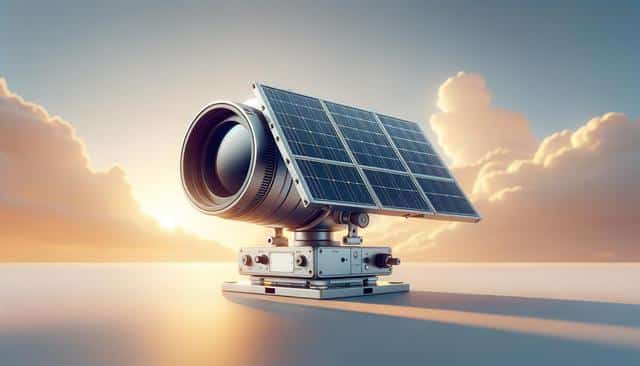Understanding Solar Cameras
Solar cameras are an innovative piece of technology designed to provide security solutions without relying on traditional power sources. Utilizing solar panels, these cameras convert sunlight into electrical energy to power their operations. This capability makes solar cameras particularly appealing for locations where power sources are scarce or nonexistent. Their installation is straightforward, requiring minimal technical knowledge, which adds to their appeal. However, understanding whether they meet your specific needs involves looking beyond these surface-level benefits.
Installation and Placement Considerations
Installing a solar camera is generally simple, as it eliminates the need for extensive wiring. This feature makes them ideal for remote areas or temporary setups. When installing, consider the following placement factors:
- Sunlight Exposure: Ensure the solar panel receives adequate sunlight to function effectively.
- Height and Angle: Position the camera high enough to capture the necessary area without obstruction.
- Weather Conditions: Evaluate how environmental factors like snow or heavy rain might impact solar efficiency.
While installation is typically easy, strategic placement is crucial for maximizing the camera’s operational potential.
Cost Efficiency and Maintenance
One of the primary advantages of solar cameras is their potential for reducing energy costs. By harnessing solar energy, they can significantly cut down electricity expenses, which is particularly beneficial for those conscious of high utility bills. Furthermore, maintenance usually involves occasional cleaning of the solar panels to ensure they remain efficient.
However, it’s important to consider the initial investment in quality solar cameras, which might be higher compared to traditional models. This upfront cost should be weighed against the long-term savings in energy expenses.
Performance and Reliability
The performance of solar cameras can vary based on several factors, including solar exposure, weather conditions, and the quality of the camera model. During cloudy or rainy days, energy generation might be limited, affecting the camera’s operation if not equipped with a reliable battery backup.
Nevertheless, many solar cameras come with highly-rated performance features such as motion detection, night vision, and high-definition video quality, making them a competitive option in the surveillance market. Choosing a well-regarded model is essential to ensure reliable functionality.
Who Should Consider Solar Cameras?
Solar cameras are suitable for anyone needing surveillance in areas where electricity access is limited or where running cables would be costly or impractical. They are well-regarded by:
- Rural Property Owners: Ideal for farms, cabins, or other rural locations.
- Environmental Enthusiasts: Those looking to minimize their carbon footprint.
- Temporary Event Organizers: Perfect for construction sites or events where temporary surveillance is needed.
By understanding user needs and site-specific conditions, solar cameras can be a highly efficient and sustainable security solution.
Conclusion
In conclusion, solar cameras offer a versatile and eco-friendly alternative to traditional surveillance systems, especially in areas with limited power access. While they come with considerations such as weather dependency and initial costs, their benefits in terms of cost savings and easy installation make them a compelling option for many users. Evaluating your specific needs and environmental conditions will help determine if solar cameras are the right choice for your security requirements.
